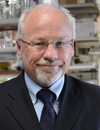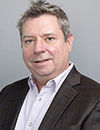
17th Lab-on-a-Chip and Microfluidics World Congress 2024
Training Courses
Microfluidics and Nanofluidics for Diagnostic Tests
November 18, 2024 from 09:00-11:00 -- Held at The Slate Room, The Hills Hotel, Laguna Hills, California
In vitro diagnostic testing is projected to be a $150B market in 2032 and has been driven by the new push in precision medicine, which seeks to match a patient’s molecular composition of his/her disease to the therapy that would maximize favorable outcomes for that patient. However, the complexity of most molecular testing strategies has demanded new paradigms to streamline the workflow and alleviate the need for sophisticated equipment and well-trained operators to carry out the diagnostic test. In this training course, I will cover the challenges and opportunities for both microfluidics and nanofluidics for clinical diagnostic testing.
The specific items that will be covered in this training course include the following:
1. Different types of clinical tests to manage a particular disease.
2. Clinical and analytical figures-of-merit requirements in clinical diagnostics.
3. Use of liquid biopsy markers for cancer disease management.
4. Current diagnostic tests for cancer management.
Microfluidics for clinical testing.
a. Test requirements.
b. Logical choice – plastic microfluidics.
c. Survey of microfluidic devices for clinical sample processing
PCR
1. Conventional PCR (thermal cycling)
2. Droplet digital PCR
3. Isothermal amplification
4. Mutation detection assays
5. Ligase detection reactions
6. Allele specific PCR
Device examples for liquid biopsy analysis
1. Enrichment of CTCs
2. Enrichment of EVs
Commercial systems
1. Bio-Rad ddPCR
2. Agilent TapeStation
Integrated systems for clinical sample processing.
1. Different types of integrated systems.
2. Examples of integrated systems for processing liquid biopsy samples.
Nanofluidics: the wave of the future for clinical testing.
1. What is nanofluidics and what can it offer.
2. How to make nanofluidic devices – differences compared to microfluidics
3. Logical choice – plastic-based nanofluidics
4. Examples of nanofluidics in medical diagnostics
5. Nanopore sequencing
6. DNA stretching for the detection of DNA structural variations.
**Slide Decks of all Material Presented will be Available via PDF Files Electronically to All Training Course Participants**

Steve Soper, Foundation Distinguished Professor; Director, Center of BioModular Multi-scale System for Precision Medicine, Adjunct Professor, Ulsan National Institute of Science & Technology, The University of Kansas
Microfluidic Product Development: How to Integrate Design for Manufacture from Benchtop to Commercial Scale
November 18, 2024 from 11:00-13:00 -- Held at The Slate Room, The Hills Hotel, Laguna Hills, California
This training course is being taught by Dr. Leanna Levine, a veteran in the microfluidics, system design and product development space. The goal of this training course is to present an actionable set of tools for translating microfluidic design into products.
Specifically, the following topics will be addressed:
Looking at product development from the view point of your stakeholder
Create milestones with deliverables that de-risk and build momentum
Benchmark your results to assure data integrity; good science is necessary for a viable product
When to transition from a working alpha to a beta prototype
Understand and balance function and complexity to avoid a high cost of manufacture
The overall goal of this training course is to engage with fellow attendees, engage with the instructor and discuss topics as they relate to your product development efforts. Subsequent to this course is the 2.5-day main conference and a deep dive into these areas during the conference in presentations and discussions.
**If you are involved in microfluidic product development, this training course is a must-attend**

Leanna Levine, Founder & CEO, ALine, Inc.
3D-Printing of Microfluidics
November 18, 2024 from 20:30-22:30 -- Held at The Slate Room, The Hills Hotel, Laguna Hills, California
3D printing has been gaining popularity as a method for rapidly producing microfluidic devices with complex channel structures routed in three dimensions.
This short course will cover:
Mechanisms of 3D printing techniques as applied to microfluidic fabrication,
The state of the art of commercially available solutions for microfluidic printing
Applications and limitations of 3D-printed microfluidic systems
How emerging and future technologies will improve the potential of 3D printing as a microfluidic fabrication tool

Noah Malmstadt, Professor of Chemical Engineering and Materials Science, University of Southern California
Introduction to Microfluidics
November 19, 2024 from 20:30-22:30 -- Held at The Slate Room, The Hills Hotel, Laguna Hills, California
Introduction to Microfluidics Training Course
**A Training Course for Beginners and New Entrants into the Microfluidics Field**
This presentation will introduce basics of microfluidics.
• Topics include size scales of microfluidic devices and how that affect microscale fluid flows
• The evolution and different methods of microfluidic device fabrication
• Select biological applications including cellular, molecular, and exosome applications
• Some of the challenges and opportunities and future perspectives will also be discussed
• Time will also be reserved for questions and discussions
**This is an excellent course for new entrants seeking an immersion into the microfluidics field -- the course is taught by Professor Shu Takayama, a World Leader in the Lab-on-a-Chip and Microfluidics Field.**

Shuichi Takayama, Professor, Georgia Research Alliance Eminent Scholar, Georgia Institute of Technology & Emory University School of Medicine
* The program is subject to change without notice, due to unforeseen reason.
